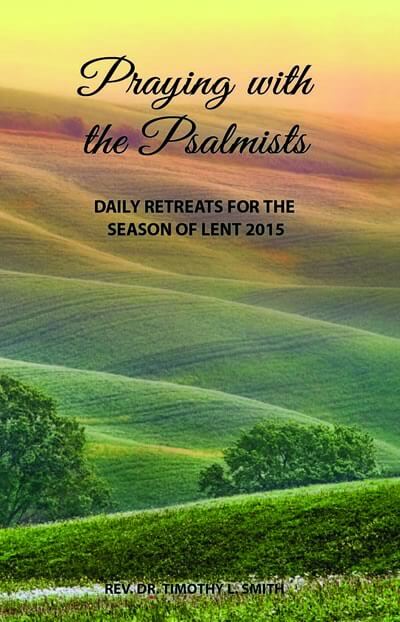 How To Pray
How To Pray
Why, my soul, are you downcast?
Why so disturbed within me?
Put your hope in God,
for I will yet praise him,
my Savior and my God.
My soul is downcast within me;
therefore I will remember you
from the land of the Jordan,
the heights of Hermon—from Mount Mizar.
Deep calls to deep
in the roar of your waterfalls;
all your waves and breakers
have swept over me.
By day the Lord directs his love,
at night his song is with me—
a prayer to the God of my life.
Psalm 42:5-8
Today’s psalm text by the Sons of Korah has a lot to teach us about prayer. First we see their prayer as giving vent to all their fears and discouragement. There is no mincing of words, no holding back from God; they pray as they can, and not as they ought. They model prayer for us:
We begin to hear the self we actually are emerging out of our shadow selves, our counterfeit selves, our pretended selves. We become aware of what is in us, the best and the worst….Scolding or excluding parts of ourselves or shutting the door will not do. We must admit what is there” (Ann and Barry Ulanov, Primary Speech: A Psychology of Prayer).
The psalmists freely, unashamedly admit to God that they are feeling “downcast” and “disturbed”. They cry out to God “from the land of the Jordan, the heights of Hermon – from Mount Mizar”. They find themselves feeling far, far away from God, from Jerusalem, and from the house of God. Stranded in the mountainous heights of Hermon along the headwaters of the Jordan River, they bemoan the “deep…waterfalls…waves…breakers”. These water images draw upon ancient Near Eastern symbols of the powers of chaos and evil. They feel their troubles as if wave after wave is crashing over them. Evils are personified as calling to one another, “Deep calls to deep in the roar of your waterfalls.”
It is instructive that the psalmists do not stop with emoting, with pouring out their feelings of desperation. Rather, they deliberately, resolutely, and intentionally make the decision to “remember”. They remember that God is with them in their troubles. They catch themselves and make themselves think about realities other than what they are feeling: “therefore I will remember you.” They call to mind God’s faithfulness and love: “By day the LORD directs his love, at night his song is with me.”
Bottom line: this psalm takes us into the inner dialogue of prayer. We get to listen in as the troubled psalmists take hold of themselves and do some serious self-talk: Listen, self! “Why my soul, are you downcast? Why so disturbed within me?” Like most of us the psalmists have tapes playing inside their heads with messages of discouragement and despair. They know they must stop listening to those tapes and start talking truth to themselves about God and their situation. Of this inner dialogue Charles Spurgeon says, “As though he were two men the Psalmist talks to himself. His faith reasons with his fears, his hope argues with his sorrows.” The Welsh preacher Martyn Lloyd-Jones writes about the need to talk to our self:
Have you not realized that most of your unhappiness in life is due to the fact that you are listening to yourself instead of talking to yourself? Take those thoughts that come to you the moment you wake up in the morning. You have not originated them, but they start talking to you, they bring back the problems of yesterday, etc. Somebody is talking. Who is talking to you? Your self is talking to you. Now this man’s treatment was this: instead of allowing this self to talk to him, he starts talking to himself. (Lloyd-Jones, Spiritual Depression: Its Causes and Cure)
In today’s psalm text the Sons of Korah model a good way to pray. They show us that praying involves taking time to talk about what we are honestly feeling. No mincing of words. Then we proceed to remember God, His love, and His faithfulness to us. ”Why, my soul, are you downcast? Why so disturbed within me? Put your hope in God.” What a wonderful way to pray!
READ REFLECT RESPOND REST
RECORD (optional)


 How To Pray
How To Pray
